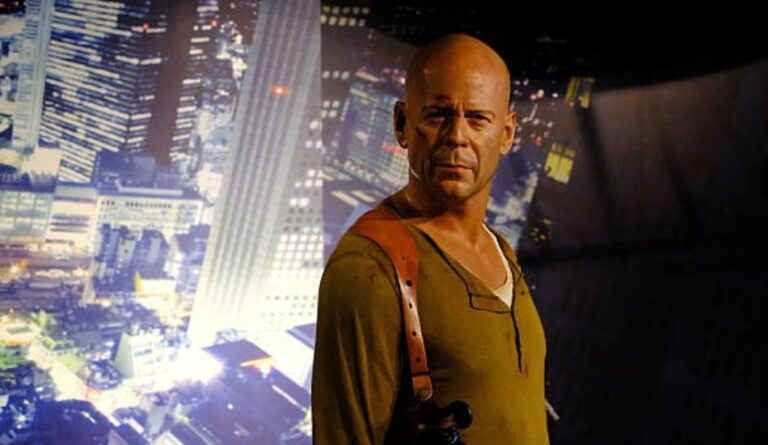Emilio Echevarría: The Timeless Talent of Mexican Cinema
Introduction
Emilio Echevarría’s presence on screen was unforgettable — intense, brooding, and always layered with emotional complexity. While the world may remember him best for his haunting portrayal of El Chivo in Amores Perros or his role in the James Bond blockbuster Die Another Day, his contributions to Mexican cinema and international film go far deeper.
From late-blooming artist to cinematic icon, this is the full story of Emilio Echevarría — his life, education, career milestones, major roles, and legacy.
Who is Emilio Echevarría?
Born on July 3, 1944, in Mexico City, Emilio Antonio Echevarría Noriega led a fascinating and unconventional journey into the world of acting. Unlike many actors who begin their careers in youth, Echevarría’s path was anything but typical. He trained first in accounting, earning his degree from the National Autonomous University of Mexico (UNAM), one of the most prestigious institutions in Latin America.
For a time, he worked in finance, even holding a job at Televisa, Mexico’s media giant. But it wasn’t until his 30s that he decided to explore his passion for the performing arts. And once he stepped into the world of acting, he never looked back.
Early Acting Roots and Education
While his formal academic education was in accounting, Echevarría immersed himself in artistic education through Mexico’s rich theatrical tradition. He joined the theater company Constitución de Arte y Sociedad, and later performed with Circo, Maroma y Teatro, training under some of the most prominent figures in Mexican stage arts, including José Luis Ibáñez.
This grounding in live performance gave him a nuanced understanding of character, timing, and presence — all of which would become hallmarks of his later film roles.
The Rise to Cinematic Fame
Emilio Echevarría made his film debut in Un día crucial para Ausencio Paredes (1987). His performances in films such as Intimidad (1989), Morir en el Golfo (1990), and Intimidades en el cuarto de baño (1991) began to garner attention in the local scene.
But it was the turn of the millennium that would introduce him to a global audience.
Amores Perros: The Role That Defined a Generation
In 2000, Echevarría starred in Alejandro González Iñárritu’s internationally acclaimed film Amores Perros. Playing “El Chivo”, a former guerrilla turned hitman haunted by his past, Echevarría delivered a powerful performance that captured both the emotional desolation and fragile humanity of a man seeking redemption.
The film, which also featured Gael García Bernal, became a defining piece of modern Mexican cinema, winning awards globally and earning an Academy Award nomination for Best Foreign Language Film.
Echevarría’s portrayal was raw, riveting, and unforgettable — solidifying his place in cinematic history.
Hollywood and Beyond: A Global Presence
Following Amores Perros, Echevarría transitioned to international projects with ease, showcasing his versatility and presence in films beyond Mexican borders.
Y Tu Mamá También (2001)
Though his role in Alfonso Cuarón’s coming-of-age road drama was brief, his performance added a narrative gravitas to a film that became one of Mexico’s most internationally celebrated.
Die Another Day (2002)
In a surprising yet welcome shift, Echevarría appeared in the James Bond franchise, playing Raoul, a cigar-smoking Cuban intelligence officer who aids Pierce Brosnan’s Bond. Though a secondary role, it introduced Echevarría to an even wider audience and showed his range beyond dramatic art-house cinema.
The Alamo (2004)
Echevarría portrayed General Antonio López de Santa Anna, the Mexican general and politician, in this American historical war film. His performance brought historical weight and complexity to a polarizing figure, further demonstrating his command over layered characters.
Later Career and Continued Relevance
Throughout the 2000s and 2010s, Emilio Echevarría continued working in both Mexican and international cinema.
Key Films Include:
Babel (2006) – Reuniting with Iñárritu in a story of cross-cultural connections and communication.
El Búfalo de la Noche (2007) – A psychological thriller based on Guillermo Arriaga’s novel.
Memoria de mis putas tristes (2011) – A romantic drama adapted from Gabriel García Márquez’s final novella.
Colosio: El Asesinato (2012) – A dramatic interpretation of the assassination of presidential candidate Luis Donaldo Colosio.
A Monster with a Thousand Heads (2015) – A tense thriller about medical corruption and justice.
Despite being in his 70s, Echevarría continued to bring intensity and honesty to every performance, proving that age had only refined his craft.
Awards and Nominations
Though not as decorated internationally as some of his peers, Emilio Echevarría received critical acclaim in Mexico and abroad. He was nominated for the Ariel Award (Mexico’s top film honor) for:
Morir en el Golfo (1990)
A Monster with a Thousand Heads (2016)
The Chosen (2018)
These nominations recognized his consistent excellence and ability to disappear into a wide range of characters.
Lourdes Echevarría: The Family Legacy
Emilio’s daughter, Lourdes Echevarría, has also pursued a career in the arts. Though not as widely known as her father, Lourdes has appeared in several independent productions in Mexico and remains active in both performance and creative arts.
Their shared dedication to storytelling speaks volumes about the artistic lineage of the Echevarría family.
A Sudden Goodbye: Emilio Echevarría Died in 2025
On January 4, 2025, Emilio Echevarría passed away at the age of 80, in Mexico City. The cause of death was not publicly disclosed, but the news sent waves through the entertainment community both in Mexico and internationally.
Tributes poured in from actors, directors, and fans around the world. The Mexican Academy of Cinematographic Arts and Sciences (AMACC) called him “a cornerstone of Mexican film,” and his collaborators described him as “a fearless and generous soul with unmatched talent.”
Legacy: A Timeless Force in Mexican and Global Cinema
Emilio Echevarría’s career was a testament to the power of passion, perseverance, and transformation. Entering the acting world later than most, he made every moment count — carving a path that was deeply respected and uniquely his own.
He gave voice to characters that were often on the fringe — broken, misunderstood, lost, or seeking redemption. And in doing so, he helped elevate Mexican cinema to global heights.
His roles in Amores Perros, Die Another Day, The Alamo, and Babel are now part of the international cinematic canon, studied by aspiring actors and revered by critics.
Final Words
At Chopmagazine.com, we believe in celebrating artists whose impact transcends the screen. Emilio Echevarría was one such artist — an actor whose journey, choices, and performances continue to inspire. His body of work is not only a reflection of immense talent but of a life lived with intention and depth.
Whether you’re discovering his movies for the first time or revisiting his classics, Emilio’s legacy is one that deserves to be cherished.







